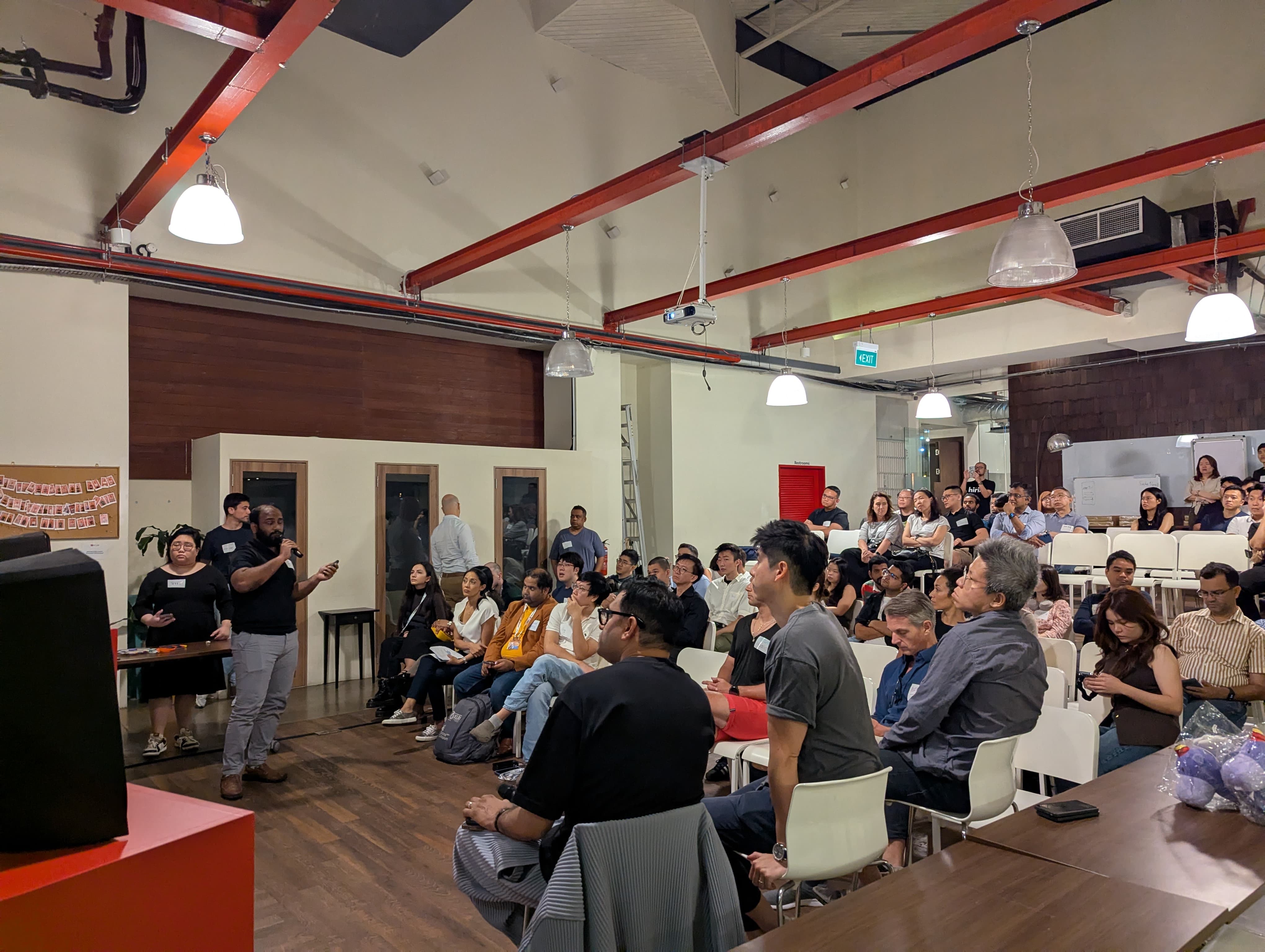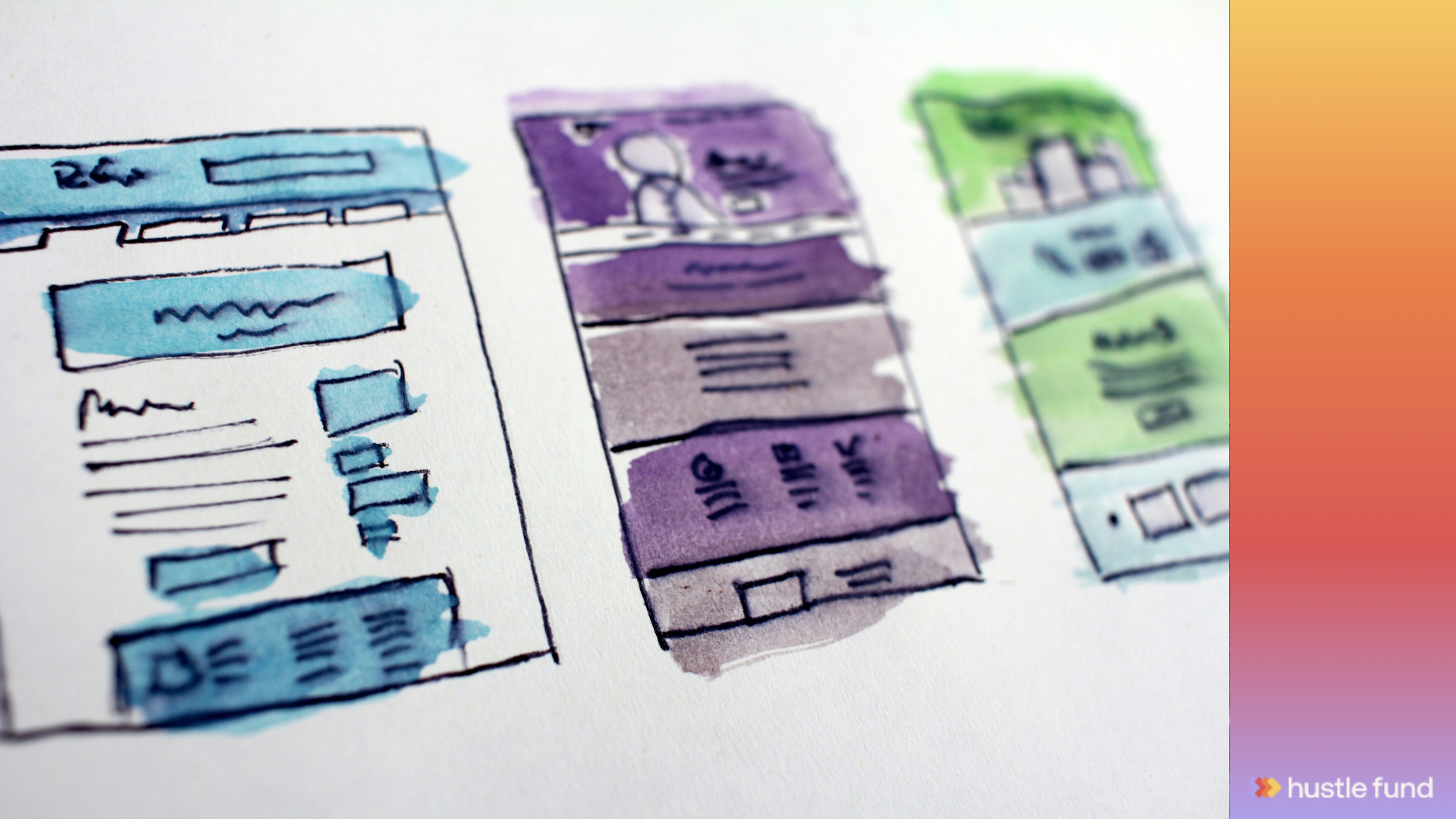Gokul Rajaram Investments: What the "Godfather of AdSense" Teaches Us About Product-Led Investing
.png)
Brian Nichols is the co-founder of Angel Squad, a community where you’ll learn how to angel invest and get a chance to invest as little as $1k into Hustle Fund's top performing early-stage startups.
Most investors write checks and offer advice. Gokul Rajaram rolls up his sleeves and helps founders build products that actually work.
After spending weeks studying Gokul Rajaram investments and his approach to backing companies, I've found patterns that every early-stage investor should understand. This isn't about copying a portfolio of 300+ companies. It's about understanding how someone who built billion-dollar products at Google, Facebook, and Square thinks about where to deploy capital.
From Google AdSense to 300+ Angel Investments
Gokul is known as the "Godfather of Google AdSense," growing it from zero to over $1 billion in revenue. He later founded an NLP company that was acquired by Facebook, where he led the Ads Product team as Product Director, helping grow revenue from $750 million to $6.5 billion and transitioning Facebook's advertising business to become mobile-first.
That's the foundation. Gokul didn't just work at these companies. He built the products that generated tens of billions in revenue. When he invests in a startup, he's not guessing about what works. He knows.
Gokul serves as a board member at Pinterest, The Trade Desk, Coinbase, AtlasCard, and CoinTracker, and has made investments in over 300 companies. But here's what makes studying his approach valuable: his investment thesis is built entirely on product thinking.
The Product-First Investment Philosophy
Gokul aims to be a founder's most helpful and trusted partner on the things that matter: product, growth, people, culture, and capital.
Most investors say they add value. Gokul actually does it. Founders at companies like Faire note: "I've learned a ton from Gokul, both when I was working for him at Square and as an advisor to me at Faire. He's an expert in the craft of building products and product strategy. A lot of what we've done at Faire was based on what I learnt from Gokul, from how to use OKRs to set goals to how to organize our teams as we've scaled."
Here's the tactical lesson: the best investors don't just offer generic advice. They have specific operational expertise that directly helps companies scale. When you're building your own investment strategy, ask yourself: what specific expertise can I offer that most other investors can't?
What "Product Thinking" Actually Means for Investors
Gokul defines product thinking as the process of building a product to create customer value while driving business value. The main reason a product fails is because it doesn't solve a real customer problem or meet customer needs.
This isn't abstract philosophy. It's a framework for evaluating every early-stage investment.

The Three Questions Gokul Asks:
Does the founder obsess over the customer problem, not just the solution?
Gokul emphasizes: "Most people focus too much on the solution and how to build it; they don't live the customer problem enough. As part of a product team, you need to talk to customers every week, and not about the product you're building."
When you're evaluating deals, don't just ask founders about their product features. Ask them about the last five customer conversations they had. If they can't articulate specific customer pain points with real examples, that's a red flag.
Can the founder articulate and test hypotheses around customer behavior?
The best founders don't just build features. They run experiments. Gokul advises: "Don't let your ideas germinate in your head for too long. Take an idea and have it meet the market in some way. You'll learn a lot."
Does the founding team have both commercial instinct and product execution?
Rajaram's seed investing philosophy emphasizes finding founding teams with both commercial instinct and product execution. That means a builder and a seller, a balance of product execution and go-to-market savvy.
This is huge. So many investors back solo technical founders without thinking about who will actually sell the product. Or they back great salespeople who can't build anything. Gokul looks for complete teams.

The Portfolio: What Gokul Actually Backs
Gokul's portfolio includes Alation, Airtable, BetterUp, Cockroach Labs, Coda, Cohesity, CloudWalk, CRED, Curefit, Deel, Digital Ocean, Faire, FanDuel, Figma, Ironclad, Learneo, Pigment, Pipedrive, Printify, Poshmark, Postman, Quotient Technology, Rocket Money, Rubrik, Shape Security, Taboola, Vercel, and Vungle.
Let's break down the patterns:
Developer Tools and Infrastructure
Companies like Postman, Vercel, Cockroach Labs, and Coda. These are tools that developers and product teams use every day. Gokul understands these markets deeply because he's been the customer.
Enterprise SaaS with Strong Product-Market Fit
Airtable, Figma, Pipedrive, and Ironclad. These aren't just feature-rich products. They're products that customers genuinely love using.
Indian Market Opportunities
CRED, Curefit, and CloudWalk show Gokul's thesis around emerging markets with massive growth potential and underserved customer needs.
The pattern? Gokul backs companies building products he would personally use or products solving problems he deeply understands. That's not random. That's strategic focus.
The "First Principles Thinking" Filter
Gokul looks for "first-principles thinking," the ability of a founder to reason through a problem from the ground up, rather than following conventional wisdom. This approach led him to write one of the first checks to Printify founder James Berdigans in 2016. "Everyone passed on James in the pre-seed, but I was excited by the founder's depth of understanding and how much he knew about the failures of past attempts."
Here's the tactical lesson: the best investments often come when you develop conviction that others don't share yet. But that conviction needs to be based on something real, like a founder's unusually deep understanding of why previous attempts failed.
When evaluating deals, ask founders: "What have other companies tried in this space? Why did they fail? What are you doing differently?" If they can't answer those questions thoughtfully, they haven't done the work.
Speed, Small Teams, and Execution
Gokul talks frequently about the importance of speed and small teams, noting that once teams get too large, you need to decompose them back into smaller teams to maintain velocity.
This isn't just operational advice for portfolio companies. It's an investment filter.
Gokul advises startups: "Don't design for scale. Many companies build a monolith and then decompose it after several years. So do not overdesign for scale too early. Start with a simple system, then make changes. The main advantage a startup has is its speed. Your iteration time needs to be one or two orders of magnitude faster than the large company you're competing with."
For investors, this creates a framework: are you backing founders who understand how to move fast with small teams? Or are they overbuilding infrastructure before they have product-market fit?
The "Most Helpful Investor" Standard
Gokul's goal is for every founder he backs to say that he's the most helpful investor on the cap table.
That's a high bar. But it's the right one.
Founders at companies like Rocket Money note: "Gokul was our default go-to resource as we worked through questions around fundraising and business strategy. His ability to view situations both as an operator and as an investor means he's able to give practical guidance that yields tangible value."
The tactical question for your own investing: are you actually helpful, or are you just present? Can founders point to specific ways you've helped them solve real problems?
Gokul notes: "Whatever a founder's situation, I can connect them to an expert that I've worked with at a great company who has solved that problem."
That's the unfair advantage of having built products at Google, Facebook, Square, and DoorDash. But every investor has some network or expertise they can leverage. The question is whether you're actually doing it.
Launching Marathon: The Long-Term Bet
Gokul recently launched Marathon Management Partners, a fund that will "invest in and support founders who are obsessed with the problem they're solving, who understand the customers they're building for better than anyone else, and for whom their company is their life's work. The name comes from the belief that building enduring companies requires patience, perseverance, resilience, relentlessness, and a long-term point of view."
This crystallizes Gokul's entire philosophy. He's not looking for quick flips or trend-chasing. He's backing founders who are in it for the long haul.
The Self-Serve Product Thesis
From his Google AdSense experience, Gokul took away a key lesson: "Most companies make it too hard for prospects and customers to try their product. Companies will grow if they remove every barrier to customers trying out the product; in other words, make it truly self-serve."
This has become an investment filter. When evaluating SaaS companies, Gokul looks for products that reduce friction to adoption. Can someone sign up and get value in minutes? Or does it require sales calls, implementations, and complex onboarding?
The best products today are self-serve. That's not just a nice-to-have. It's essential for efficient growth.
Five Tactical Takeaways for Early-Stage Investors
1. Invest in complete founding teams
Look for teams that have both commercial instinct and product execution. A builder and a seller together create the complete package.
2. Evaluate product thinking, not just vision
Ask founders if they obsess over customer problems, not just solutions. Do they talk to customers weekly? Can they articulate specific pain points?
3. Look for first-principles thinkers
Back founders who can explain why previous attempts in their space failed and what they're doing differently based on first-principles reasoning.
4. Prioritize speed and iteration
The best startups run at least six experiments per quarter. Are you backing founders who move fast, or ones who overthink and overbuild?
5. Actually be helpful
Set the bar high: aim to be the most helpful investor on every cap table. If you can't offer specific operational expertise, don't invest.
The Bottom Line
Gokul Rajaram investments reveal something important about early-stage investing: the best returns come from actually helping founders build better products. Not just providing capital. Not just making introductions. Actually rolling up your sleeves and helping with product strategy, hiring, and execution.
For early-stage investors, the lesson isn't to only back enterprise SaaS companies or developer tools. It's to develop deep expertise in a specific area and back founders in that domain where you can genuinely add value. Communities like Angel Squad bring together investors who understand that adding value beyond capital is what separates good investors from great ones.
The companies that win aren't always the ones with the most funding or the best pitch decks. They're the ones that build products customers genuinely love and can't live without. That's what Gokul looks for. And that's what smart investors should be backing.













